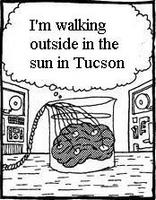![]()

 Manufacturing Consent III: Which Frog Is It?
Manufacturing Consent III: Which Frog Is It?
(This article is in a series, The Manufacture of Consent. Other parts will be found at the bottom.)
The range of media ownership is unprecedented in history. Conglomerates now shape American culture and society, from movies and television to music, book publishing, and the web. They impose a different kind of Big Brother over the nation--not Orwell's totalitarian dystopia, but a social engineering that determines even teen values and voter preferences. They cross generations, these conglomerates.
If we believe the conglomerates, we have more choices, and this is true. We have more options to buy the same package merchandised under different labels.
A handful of owners push their products on magazine racks, cable channels, web sites, television programs, radio shows. With their diverse outlets and labels, they can sell the same or slightly altered material without paying for additional staff. With minor revisions, a few journalists can feed news and information to the many outlets of companies under the same conglomerated umbrella. By this means conglomerates make more money more quickly.
As already explained in The Manufacture of Consent, Part One, the free market is not so free for you and me. Conglomerates threaten our culture and our society. Our entertainment, our diversions, our news and information come at a very high price, indeed.
At one time, books were published by people who loved them. At Scribner's, Maxwell Perkins sat down with young writers like Thomas Wolfe and Ernest Hemingway to help them on manuscripts. He tutored them, took them out to lunch, wrote letters. He developed friendships with them, cared about their craft. To modern publishers, he sounds quaint, amusing, although in a Barnes and Noble book store, Hemingway, Wolfe, and other cultural icons are posted on walls. The book browser can gaze on pictures of Herman Melville, Edgar Alan Poe, Emily Dickinson, all to impart a sense of high art. In truth, publishers no longer care for literature. The bottom line alone counts. The watchword is
follow the money.
Today only the product matters, not its value to society or culture, but its value to economies of scale. The present idea of free markets accepts this as the way things should be. But at what price, this acceptance? At what price to us and future generations?
This question has little resonance in the corridors of money and power because the free market is part of American mythos, regarded as almost a force of democratic nature. Its ideological father, Adam Smith, said that if each person pursues his own profit, then profit comes for everybody, all guided by
the invisible hand of nature. This invisible hand was the metaphysical Great Machine of the Eighteenth Century, a Deism in which all worked out for the best.
In our times the commonweal has become confused with uncommon wealth.
In fact, free markets don't exist. All markets are artifacts of human societies, bound by rules. We find these proscriptions in the stock exchange, the World Trade Organization, the bond market, even the black market. The monopolistic free market is economic theory become democratic theory. It is a king of the heap ideology. It is not what Adam Smith meant with his belief in a benign nature guiding the invisible hand.
The problem is that the new rules involve a corrupted moral theory, that somehow society benefits when only individualism is primary. Money alone matters, and all will sort itself out for the best if people only compete in an open market. In the meantime, fish die in our rivers, the climate warms each season, the skies turn grey above cities, the ozone gets thinner, drug use increases, criminality reaches down to twelve year olds. We buy distilled water to avoid drinking from the tap while our waste dumps are leaching into water tables.
Through the memes of media conglomeration we are distracted from these issues. Instead, the public consciousness is allowed media access which makes money for the corporations. People have a choice to turn off the televison, or switch channels, so the simplistic argument goes. This naive view is part of the brainwashing imparted by media pundits themselves, be they talk radio hosts, or Sunday morning TV gurus, all of them allowed under the scrutiny of conglomerate executives. The view assumes that society is comprised of individuals. But people also unconsciously process the countless memes that daily invade their minds. As usual, the disciples of rugged individualism fail to acknowledge unconscious factors allowing little awareness of choice--in particular memetics. (For a discussion of memes, see
Memes and Why Evolution Favored The Irrational Brain, 26 February 2004,
Memes, Genes, and God, 31 December 2003, and
Beyond Memes, 4 March 2004.)
This view prevails even as the conglomerates look to amassing more influence over society and people's lives, not in the interests of Orwellian Big-Brotherhood, but for the sake of greater profit. If people saw them as Big Brother perhaps the alarm bells would have rung long ago.
In terms of the public, children are fair game. They are influenced, of course, in the interests of sponsors and revenue.
So long, Mr Rogers, and your soft, gentle voice. Children once watched The Brady Bunch as entire families sat down in front of the television. The episodes had morals, reflected personal integrity, and provided points of view,although such perspectives are now implied as platitudes by media-memes imposed on today's youth. Modern programming targets specific youth age groups. Kids' TV, especially Saturday mornings, reveals no Mr Rogers and his slow, caring ways. The programs move frantically, hysterically, violently, and persuasively, and even the commercials do so. It is all part of the Big Sell. It is Adam Smith gone amuck.
As for MTV, it has no interest in encouraging good, solid citizens among youth, nor of promoting their happiness. Its only interest is to get them to watch what Viacom wants to sell. Their "increased choices" arrive only by management decision as to what will raise ratings. In fact, the options for youth's minds and their future happiness are not increased but narrowed by ever more cynical and ironic presentations that cater to their innate anti-authoritarian bent. They are not prepared for entry into society, as MTV gives them ironic, self-serving coolness without any broader context.
Just a few decades ago, advertisers and media had scouts in youth cultures to stay abreast of changes in attitudes, fashions, and events. They no longer need to do so. Today, youth culture and markets are shaped by those who control the media. Back then, teenagers didn't care where they bought clothes, and if a company wanted to advertise their products they would
give the kids, say, a company T-Shirt. Kids never would pay to wear an advertisement. Today brand logos are fashionable because fashion is shaped by the entertainment and commercials youth watch.
Consumer media has shaped them into good, obedient consumers who will pay to advertise consumption.
Take a look at advertising from the 1920s forward. From about the mid-1970s it gradually evolved into a new mode. Call it coolness. Now it's no longer about a community of friends, about sharing, but about how you stand out, how you look. The implicit values have become superficial.
We are not talking about American conglomerates. These are huge. They are trans-national, saddled with monstrous debt, forced always to look at the bottom line. They live in a dog-eat-dog world and compete with one another for the public consciousness. They can't afford to think about the public good, although their executives pay lip service to it when interviewed by one of their program anchors or arraigned before Congress. Don't kid yourself. They have little to no concern for standards in taste, morals, and family values. To survive, they will merchandise what they can. Their argument will always be that they only provide people with what the public wants, which is an argument that morally corrupts Adam Smith's free market. It is a view that has run his theory amuck. They aim straight for the pleasure centers of the lowest common denominator. Noblesse oblige? Forget it.
This is corporate theocracy, a new kind, a creeping totalitarianism. Democracy assumes, nay, requires, that its public be able to separate propaganda from truth and fact. *
Something is happening to America and it is frightening.* A few decades ago, the largest media companies produced only newspapers, made only movies, owned only one TV network. Conglomerates will soon control our culture, if they don't already. That is no understatement. He who controls a culture will control a society. He who controls a society, will shape its government. *(For an extended discussion of this, see
The Manufacture of Consent, Parts One and Two, linked below.)
This handful of conglomerates belongs to the best of clubs, to which you and I have no access. They make deals, have cronies, shaping the minds of youth and the general public. They can do what they want without public consent, or public retribution. In fact, in terms of their memetic influence on society and culture, they can almost do what they want
to the public.
Item. In 1996, radio,
a public property, was deregulated by the Telecommunications Act of that year. It lifted ownership restrictions, allowing a single company to own as many stations as they wanted rather than a mere 28. It allowed them to own up to eight in the largest markets. Overnight, big companies went to huge. Did it arouse any debate in congress? Duhh. Did Congress hold any hearings? Of course not. Its members' campaign chests held media money. Did you or I hear about any of this as major media news pieces? Did any network give it even the program half hour that it at least deserved in order to raise public awareness? No again. That would have been downright stupid on the part of the media moguls.
So where will it end? Abraham Lincoln had great faith in the people, believing that the common man and woman had uncommon wisdom to govern their society and themselves.
The people, yes, as Carl Sandburg succinctly put it.
This is what I think. People do not change until the pain of the status quo exceeeds the pain of acting. But the majority feels no pain. All is fine. They get their programming, the dumbing-down that degenerates with each season. They notice a connection between media programming and youth behavior, between it and adult values, attitudes, and political ignorance, but shrug as if to say, What can I do about it? Perhaps they have not yet realized the implications of the situation.
I am reminded of frogs and boiling water.
If a frog is dropped into a pan of boiling water it will immediately hop out. If it is first put in a pan of cold water slowly brought to a boil, it will then cook to death.
The fire is on and the water is becoming hot. Which frog is it?
Other Mind Shadows posts on the media:
- Edward R. Murrow & The London Blitz., 19 January 2019:
- Everybody's Magazine and Its Times in 1912, 2/16/09:
- Manufacturing Consent I: Corporate Theocracies, 21 February 2004:
- Manufacturing Consent II: Gatekeepers and Democracy, 23 February 2004:
- Manufacturing Consent III: Which Frog Is It?, 6 March 2004:
- Manufacturing Consent IV: The Bewildered Herd, 14 March 2004:
- Manufacturing Consent V: What About Terrorists or Arsenal Security Elsewhere?, 29 March 2004:
- Manufacturing Consent VI: A Brief History of The FCC and Related Legislation, 30 March 2004:
- Manufacturing Consent VII: The Media As Seen By Journalists, 2 June 2004:
- Manufacturing Consent VIII: European Public & Media, 19 October 2005;
- Manufacturing Consent IX: The O'Reilly Fracture, 24 October 2005.














